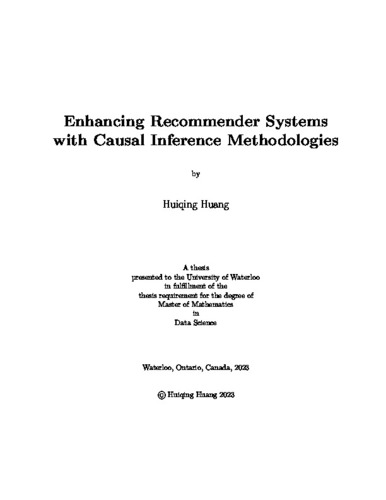| dc.description.abstract | In the current era of data deluge, recommender systems (RSs) are widely recognized as one of the most effective tools for information filtering. However, traditional RSs are founded on associational relationships among variables rather than causality, meaning they are unable to determine which factors actually affect user preference. In addition, the algorithm of conventional RS continues to recommend similar items to users, resulting in user aesthetic fatigue and ultimately the loss of customer sources. Moreover, the generation of recommendations could be biased by the confounding effect, leading to inaccurate results. To tackle this series of challenges, causal inference for recommender systems (CI for RSs) has emerged as a new area of study. In this paper, we present four different propensity score estimation methods, namely hierarchical Poisson factorization (HPF), logistic regression, non-negative matrix factorization (NMF), and neural networks (NNs), and five causal effect estimation methods, namely linear regression, inverse probability weighting (IPW), zero-inflated Poisson (ZIP) regression, zero-inflated Negative Binomial (ZINB) regression, and doubly robust (DR) estimation. Additionally, we propose a new algorithm for parameter estimation based on the concept of alternating gradient descent (AGD). Regarding the study's reliability and precision, it will be evaluated on two distinct categories of datasets. Our research demonstrates that the causal RS can correctly infer causality from user and item characteristics to the final rating with an accuracy of 96%. Moreover, according to the de-confounded and de-biased recommendations, ratings can be increased by an average of 1.6 points (out of 4) for the Yahoo! R3 dataset and 1.2 points (out of 2) for the Restaurant and Consumer data. | en |

